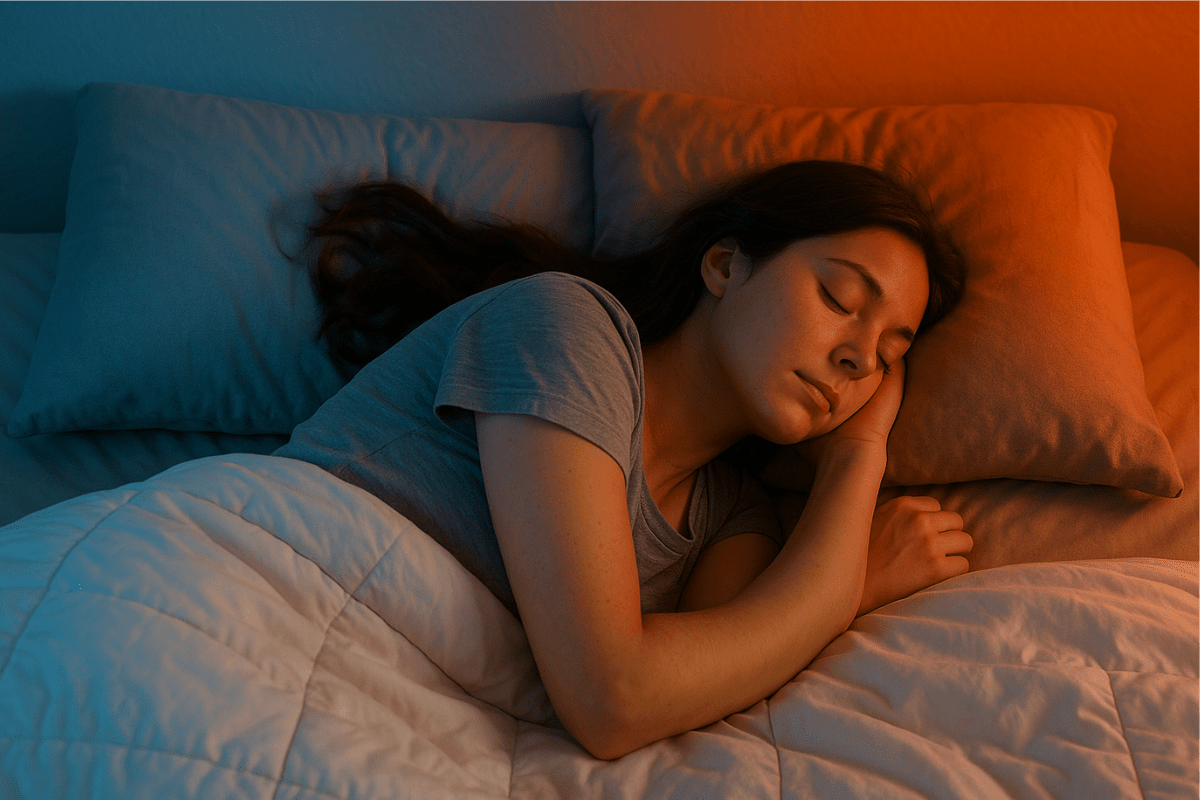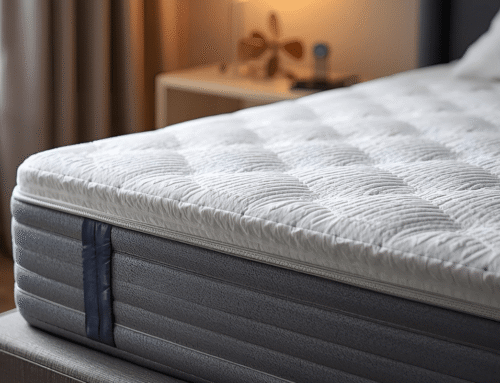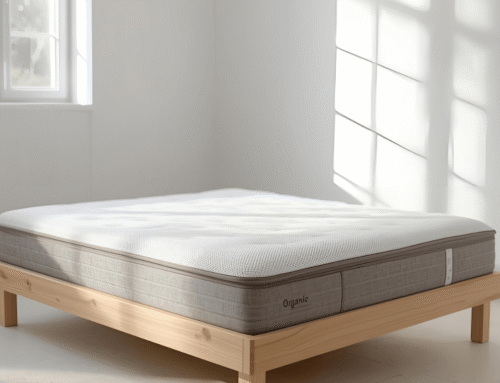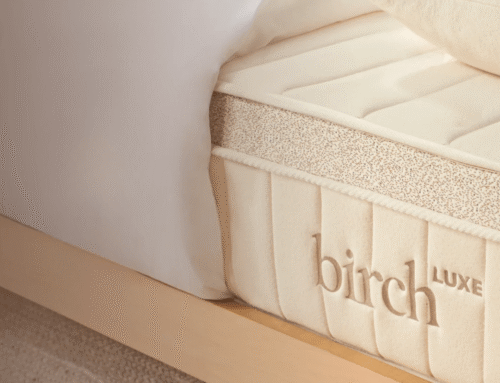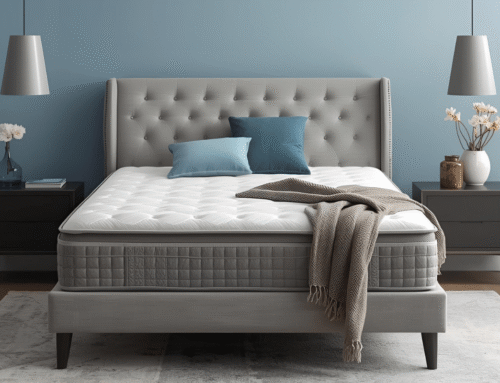Choosing the right mattress is a big deal especially when it comes down to the plush vs. firm mattress debate. Some folks love that soft, sink-in feeling. Others want a bed that stays steady and strong. If you’re feeling stuck between the two, trust me, you’re not alone! Understanding how each one feels, how it supports your body, and how long it lasts can make mattress shopping a whole lot easier.
In this guide, we’ll break down the difference between plush and firm mattresses so you can confidently pick what’s right for your body and sleep style. Whether you’re a side sleeper, back sleeper, or someone who wakes up with backaches, knowing the mattress firmness: plush vs firm is the first step toward better sleep.
Key Takeaways
- A plush mattress offers a soft, cushioned feel that gently hugs your body, ideal for side sleepers needing pressure relief.
- Medium firm mattresses help maintain spinal alignment, which are perfect for back and combo sleepers.
- Plush mattresses ease pressure on joints, while medium firm options give more structured support.
- Medium firm mattresses tend to last longer without sagging compared to plush options.
- Choosing between plush and medium firm depends on sleep style, body weight, and comfort needs.
Support: How Firm and Plush Mattresses Hold You Up
When it comes to sleep comfort, support is everything. It’s what keeps your spine aligned and helps you wake up without aches and pains. A big part of understanding support is knowing what a plush mattress is compared to a firm one. Firm mattresses offer a stable, even surface that keeps your body lifted. This helps maintain spinal alignment, especially for back and stomach sleepers. In contrast, plush mattresses let you sink in a little, especially around pressure points like the hips and shoulders.
If you’re wondering how firm a plush mattress is, the answer lies in its softness. Plush mattresses are on the softer end of the firmness scale. That’s why it’s essential to understand what does plush mean in mattress firmness when shopping for a bed. Ultimately, choosing the right comfort level between plush and firm mattress options depends on your body type, sleep position, and personal preference.
Comfort: What It Feels Like to Lie Down
Comfort is the first thing you notice when you lie down on a bed. It’s that initial “ahh” moment and it can vary a lot depending on your mattress. For example, a plush mattress is soft, offering a cushiony, sink-in feel that many people love. It cradles your body gently, which is great for side sleepers and those who like a cozy, cloud-like sensation.
But when comparing plush vs soft mattress options, it’s important to know they’re similar, yet not always the same. Plush refers to softness with some support, while ultra soft might lack that balance. For instance, an ultra plush mattress is even softer, almost like floating, but it might not offer enough support for all body types. If you’re exploring a plush hybrid mattress, it combines plush comfort with supportive inner coils. So when deciding plush or ultra plush, consider how much you want without sacrificing support.
Pressure Relief: A Key Difference Between Firm and Plush Mattress
When it comes to sleep comfort, pressure relief is a big deal especially at key points like your hips, shoulders, and knees. These areas need cushioning, or you risk waking up sore and stiff. That’s where the difference between a plush, medium and firm mattress really comes into play.
Plush mattresses tend to offer more pressure relief because they contour closely to your body. This is especially helpful for side sleepers or anyone with joint sensitivity. Firm mattresses, on the other hand, distribute weight more evenly but can feel too rigid if you’re lightweight or dealing with pain.
If you’re torn between options, discovering the perfect balance of a plush firm mattress might be the sweet spot, offering gentle contouring with enough support. Still wondering which is better for your sleep, plush or medium firm mattress? It often depends on your sleep position, body type, and comfort preferences.

Spine Alignment: Keeping Your Body in Line
A healthy sleep posture starts with proper spine alignment. Your spine should stay in a neutral, straight line while you sleep, otherwise, you might wake up sore or stiff. This is why choosing between a firm and plush mattress really matters.
Firm mattresses tend to do a better job at keeping your back aligned if you’re a stomach or back sleeper, as they prevent your hips from sinking too low. However, a plush mattress is good for back pain too, especially if it has supportive layers underneath the softness. It can relieve pressure without throwing your spine out of balance.
If you’re weighing your options, you might be wondering which is best for your comfort, between a plush mattress or pillow top. Pillow tops offer an extra layer of cushion, while plush mattresses are built with softness throughout. Your best pick depends on how much cushioning you want and how much support your body needs.
Durability: How Long Each Mattress Lasts
Comfort means nothing if your bed starts sagging too soon. You might be wondering the difference between a plush or medium mattress when it comes to lifespan.
In general, firm mattresses tend to last longer. They’re built with denser, more supportive materials that hold their shape over time. Plush mattresses, while super cozy, often have softer top layers like memory foam or quilting that can compress or wear down faster.
That said, a high-quality plush or medium mattress can still offer years of comfort if it’s well-constructed. When choosing which is best for your sleep, plush or medium mattress, think about how much softness you want now and how well it will hold up. Still unsure? Comparing ultra plush or a medium mattress may help you decide between cloud-like comfort and lasting support.
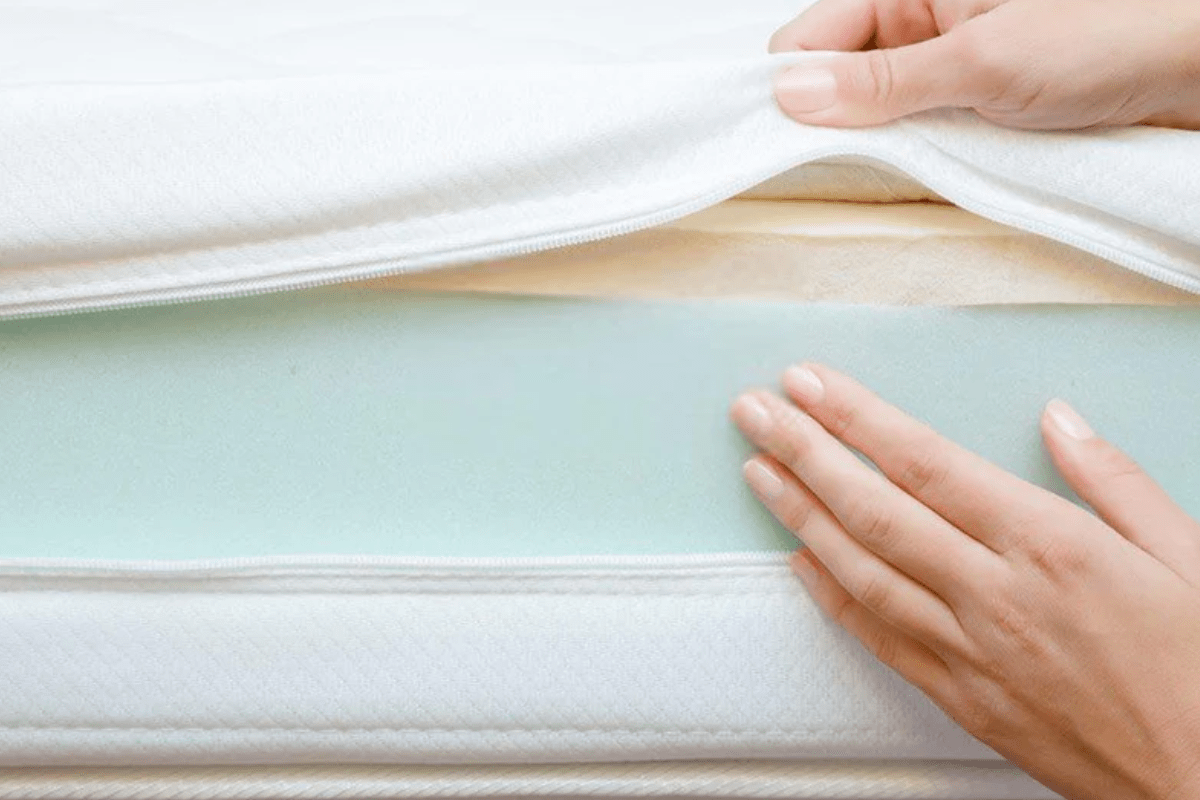
Sleep Position: Finding the Right Fit for Your Style
The way you sleep has a big impact on what kind of mattress will feel best and help you wake up pain-free. Choosing the right comfort level based on your sleep position can make all the difference between restful nights and tossing and turning.
If you’re a side sleeper, a plush mattress is usually the way to go. It allows your shoulders and hips to sink in just enough, helping to align your spine and ease pressure points. You’ll feel cradled without feeling stuck. For back or stomach sleepers, firmer mattresses tend to work better. They offer the support you need to keep your hips from sinking too deep, which helps maintain proper posture and reduces the chance of lower back pain.
No matter your sleep style, there’s a mattress out there that fits just right. It’s all about listening to your body and finding the balance that feels natural.
Body Weight: Matching Firmness to Your Frame
Your body weight plays a big role in how a mattress feels, which is why the difference between firm and plush mattress types can vary from person to person. A mattress that feels perfectly soft to one person might feel too firm or too squishy to someone else.
Heavier sleepers often benefit from firmer mattresses because they offer the support needed to prevent sinking and sagging. On the flip side, lightweight sleepers tend to prefer plush mattresses that gently cushion the joints and contour to the body.
Sometimes, though, you might be surprised by why your new plush mattress is hard. Materials can take time to break in, or the room temperature may affect how soft it feels. If your bed feels too soft over time, there are also ways to adjust it. Learning how to make your plush mattress firmer, like using a firmer topper or foundation, can help fine-tune your comfort.
Temperature: Sleeping Cool or Warm
Something a lot of people overlook is how your mattress affects your body temperature at night. Believe it or not, the mattress difference between firm and plush can play a big role in how cool or warm you sleep.
Plush mattresses, especially those made with thick memory foam, tend to retain more heat. Because you sink in deeper, airflow around your body is reduced, which can lead to feeling warmer during the night. This might be cozy in winter, but not so great if you’re a hot sleeper or live in a warm climate.
Firm mattresses, on the other hand, keep you more on the surface. Since your body doesn’t sink in as much, air can move more freely around you, helping you stay cooler throughout the night. So if temperature is a key factor in your sleep quality, your choice between plush and firm could make a bigger difference than you think.
Price: Cost Comparison Between Plush vs Firm Mattress
When it comes to pricing, plush and firm mattresses are generally comparable in base cost, especially when made with similar materials and construction methods. However, plush mattresses may occasionally be slightly more expensive due to the additional layers of cushioning or premium foams used to create their softer, contouring feel. These extra comfort layers can add to manufacturing costs, particularly in models that feature memory foam, pillow tops, or advanced pressure-relieving materials.
Firm mattresses, by contrast, often rely on denser support materials with fewer comfort layers, which can result in marginally lower prices, though this isn’t always the case. Ultimately, the price difference between plush and firm mattresses tends to be minimal and is often influenced more by brand, mattress size, and material quality than firmness level alone.
When comparing costs, it’s also important to consider long-term value. A mattress that better supports your sleep needs—whether plush or firm—can provide better rest and durability, making it a smarter investment over time.
Final Thoughts: Making the Right Choice
At the end of the day, choosing between a plush and firm mattress really comes down to your unique comfort needs, sleep position, and body type. There’s no universal “best” option—just what works best for you.
For side sleepers or lighter individuals, a plush mattress often feels more comfortable, offering pressure relief and gentle cushioning. On the flip side, firmer mattresses tend to support back or stomach sleepers better and can help prevent sagging or misalignment.
If possible, try lying on different mattresses before you buy. That way, you’ll get a real feel for what suits your body. And remember, what is the difference between plush and firm mattress types isn’t only about how soft or hard they feel. It’s about how well they support your spine, relieve pressure, and help you wake up pain-free and well-rested. Trust your comfort, and let your body guide the way.


